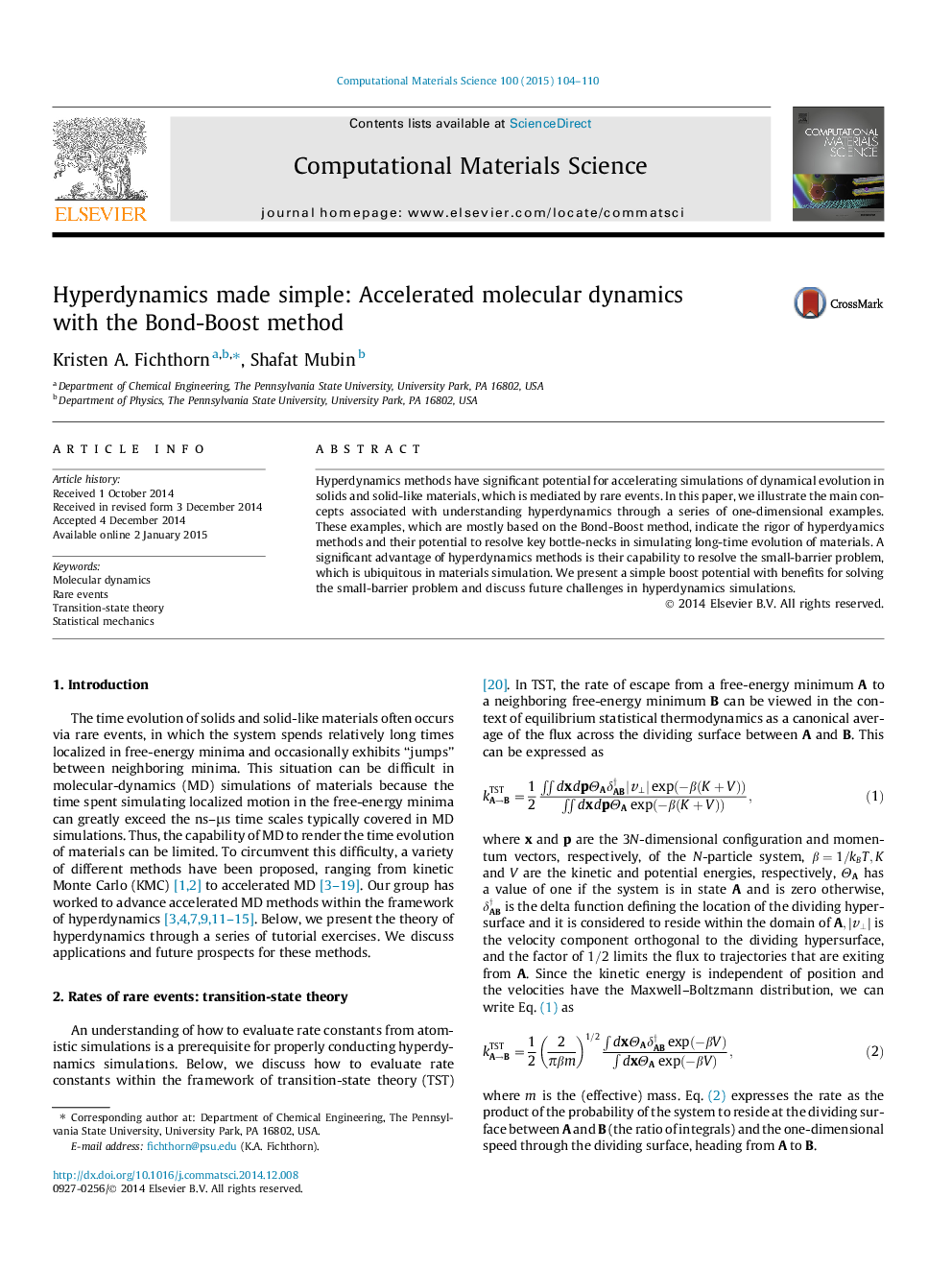| Article ID | Journal | Published Year | Pages | File Type |
|---|---|---|---|---|
| 1560344 | Computational Materials Science | 2015 | 7 Pages |
•A review of calculating rates of rare events with transition-state theory.•An introduction to hyperdynamics methods, with examples.•A new approach for handling the low-barrier problem.
Hyperdynamics methods have significant potential for accelerating simulations of dynamical evolution in solids and solid-like materials, which is mediated by rare events. In this paper, we illustrate the main concepts associated with understanding hyperdynamics through a series of one-dimensional examples. These examples, which are mostly based on the Bond-Boost method, indicate the rigor of hyperdyamics methods and their potential to resolve key bottle-necks in simulating long-time evolution of materials. A significant advantage of hyperdynamics methods is their capability to resolve the small-barrier problem, which is ubiquitous in materials simulation. We present a simple boost potential with benefits for solving the small-barrier problem and discuss future challenges in hyperdynamics simulations.
Graphical abstractFigure optionsDownload full-size imageDownload as PowerPoint slide
